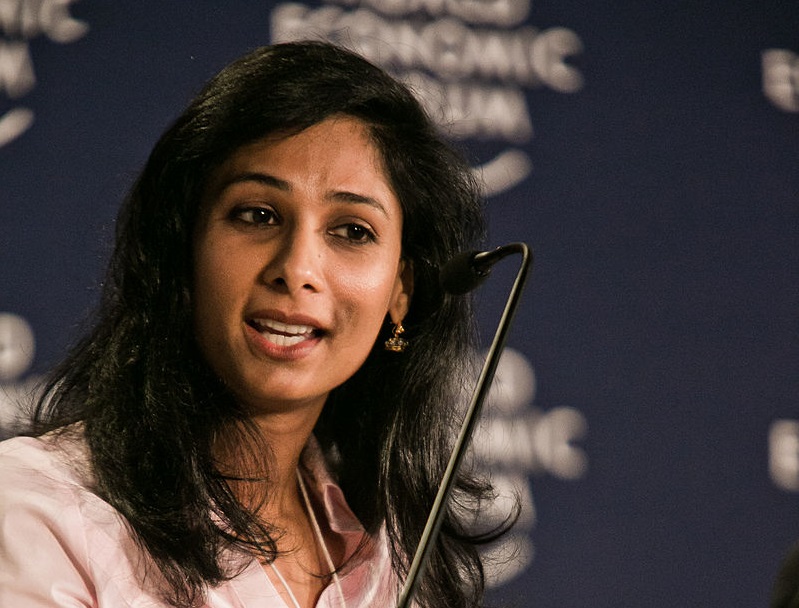
Even though a tariff is not imposed on India, a global slowdown due to the trade war will affect the country
Fear of a potential trade war between the US and China is hovering around the world economy following the decision of President Donald Trump to impose import tariffs on Chinese goods worth $60 billion.
While the governments and agencies around the world are closely watching the developments, renowned Indian American economist Gita Gopinath said that a full-blown trade war will have an impact on India.
Talking to news channel ET Now, Gopinath, a professor at Harvard University, and economic advisor to the Chief Minister of Kerala said that Indian economy would also witness the impact of the trade war as the US economy slows down as a result of it.
Even though a tariff is not imposed on India, a global slowdown due to the trade war will affect the country as it is a part of the global system, said Gopinath.
“If there is a trade war and if we now start having a reversal in growth rate in the rest of the world, that is problematic for India because India is a part of the global system,” Gopinath told ET Now.
“Even if it is a tariff is not directly put on it, just the fact that the rest of world is slowing down and the US is slowing down that is going to have an effect on India. So, I am quite concerned about it,” she added.
Gopinath’s words came at a time when the world is concerned about a possible global economic slowdown as a result of escalating trade war between the US and China.
A Bloomberg report said that the US may slip into another recession around 2020 when the country will to go for presidential election.
A slew of measures adopted by the Trump administration such as “hefty tax cuts”, and “stepped-up government spending” coupled with “robust global growth” will help the US economy continue its momentum of growth for at least two years. But, after that, economists warn that “fading fiscal stimulus, higher and rising interest rates, and cresting world demand” may turn things around and the economy may again face a contraction a decade after the recession that shook the world in 2008.



